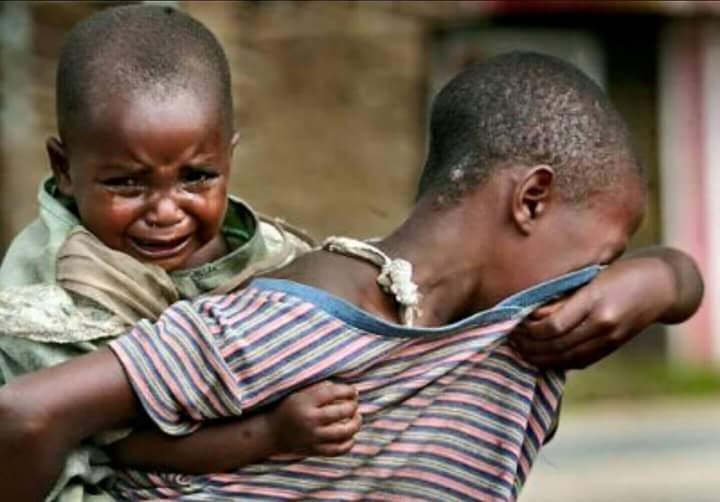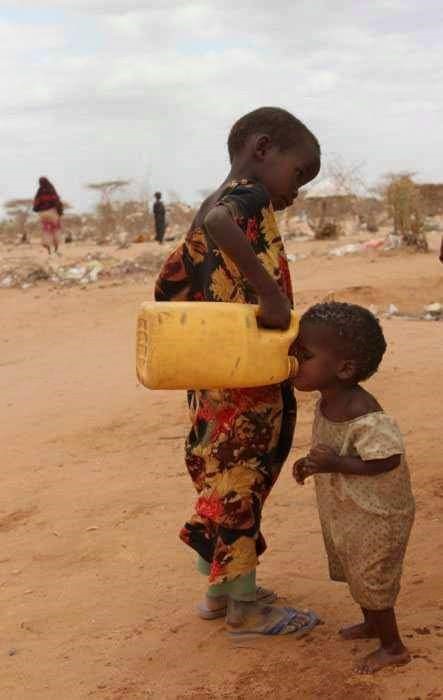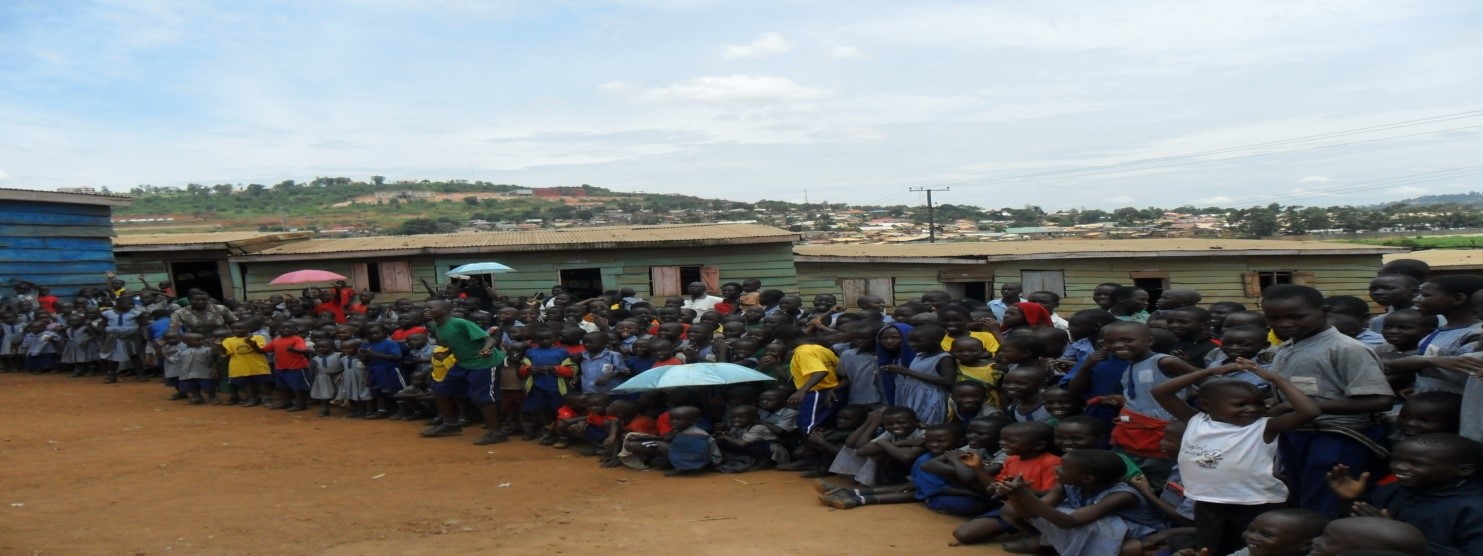ACFPHL – for a better Uganda
By Milena Rampoldi and Denise Nanni, ProMosaik. With the
following interview we will go back to Africa, to talk to ACFPHL in Uganda,
founded in 2011 by Ronald Ainebyona to work for a better society, which is
pacified, empowered, and opposes to human right violations.

What issues brought to the foundation of ACFPHL?
The African centre for peace and human life (ACFPHL)
was founded in 2011 as a nonprofit organization committed to creating lasting
solutions to African challenges such as conflicts, poverty, diseases and
injustice in societies. It was founded by Mr. Ronald Ainebyona after
interactions, visitations and felt concerned of the critical problems people
were passing through and bearing in mind his dream to help the vulnerable in
his country he started this organization with aim of fulfilling his dream. It
is from this perspective that ACFPHL was formed in the due course ACFPHL was
not founded on religious, tribe, race boundary and colour, it is for all
challenged individuals and communities.
was founded in 2011 as a nonprofit organization committed to creating lasting
solutions to African challenges such as conflicts, poverty, diseases and
injustice in societies. It was founded by Mr. Ronald Ainebyona after
interactions, visitations and felt concerned of the critical problems people
were passing through and bearing in mind his dream to help the vulnerable in
his country he started this organization with aim of fulfilling his dream. It
is from this perspective that ACFPHL was formed in the due course ACFPHL was
not founded on religious, tribe, race boundary and colour, it is for all
challenged individuals and communities.
The existence of ACFPHL depicts the extent to which uncontrolled
lawlessness among many African communities has caused anguish and suffering
among many indigent, vulnerable and marginalized members thus the concern for
African centre for peace and human life to reduce such human catastrophes to
enable them live in a pacified and harmonious society.
lawlessness among many African communities has caused anguish and suffering
among many indigent, vulnerable and marginalized members thus the concern for
African centre for peace and human life to reduce such human catastrophes to
enable them live in a pacified and harmonious society.
The incessant human catastrophes committed around the globe more
so Africa and Uganda in particular needs special attention and echoes a partner
for many African governments to effectively address the incessant human rights
abuse.
so Africa and Uganda in particular needs special attention and echoes a partner
for many African governments to effectively address the incessant human rights
abuse.
The rationale is the defense promotion and protection of the
rights of vulnerable groups in many communities has since time immemorial
remained a myth thus living many in a state of hopeless.
rights of vulnerable groups in many communities has since time immemorial
remained a myth thus living many in a state of hopeless.
Many vulnerable still suffer from all sorts of discrimination and
grave injustice.
grave injustice.
Despite many African nations being parties to the declaration of
the universal human rights, and the African charter on human and people’s
rights, there remains a gap in the promotion of these rights guaranteed by
these conventions.
the universal human rights, and the African charter on human and people’s
rights, there remains a gap in the promotion of these rights guaranteed by
these conventions.
Leapfrog approach and alliance to remove iffy, strengthen freedom
fighters association, equip communities with tools of fighting injustice
develop a strong monitoring mechanism and constant facilitation of the public
defense ministry to ensure pacified community full of love and justice for all.
fighters association, equip communities with tools of fighting injustice
develop a strong monitoring mechanism and constant facilitation of the public
defense ministry to ensure pacified community full of love and justice for all.
What are the main social issues in Uganda?
Refugee crisis caused by insurgencies in our neighbor
countries
countries
Human rights abuse by security groups
Poverty; high levels in most of households
Unemployment; high levels of unemployment in the country
Corruption; in public institutions and misuse of resources
Diseases; our country suffer high infection rate of HIV
Which kind of
activities do you carry out?
activities do you carry out?
At ACFPHL, our major activities
are;
Education
Ø Sponsorships
for pupils and high school
for pupils and high school
Ø Disaster
awareness
awareness
Ø Peace
building measures
building measures
Ø Refugee
assistance with basic needs
assistance with basic needs
Capacity Building
Ø Skills
training for women
training for women
Ø Empowering
of vulnerable and marginalized groups
of vulnerable and marginalized groups
Advocacy
Ø Advocating
for various rights for children and women, elderly
for various rights for children and women, elderly
Ø Climate
change awareness
change awareness
Ø Wetlands
and forest campaigns
and forest campaigns

Can you tell us something about our projects to promote
women’s rights and empowerment?
At
African centre for peace and human life (ACFPHL) we strengthen women’s rights
and address barriers to social, economic and political participation to achieve
gender equality and female empowerment and that’s why we’re supporting women
by:
African centre for peace and human life (ACFPHL) we strengthen women’s rights
and address barriers to social, economic and political participation to achieve
gender equality and female empowerment and that’s why we’re supporting women
by:
Ø Providing
training for female members of political parties and parliaments and supporting
the development of women’s caucuses
training for female members of political parties and parliaments and supporting
the development of women’s caucuses
Ø Providing
skill building and leadership training for women Supporting women’s
participation in political and post-conflict transitions
skill building and leadership training for women Supporting women’s
participation in political and post-conflict transitions
Ø Improving
women’s access to justice and increasing women’s participation and
representation in the justice sector
women’s access to justice and increasing women’s participation and
representation in the justice sector
Ø Supporting
local efforts to advocate for legal rights that enable women to participate
fully in the political and economic life of their societies
local efforts to advocate for legal rights that enable women to participate
fully in the political and economic life of their societies
Ø Building
capacity for local women to advocate for women’s participation in wide range of
issues and governance processes
capacity for local women to advocate for women’s participation in wide range of
issues and governance processes

Do you cooperate with local authorities and institutions? If
yes, how?
Ø Implementation
of joint projects with our local partners in communities we work
of joint projects with our local partners in communities we work
Ø Creation
of partnerships with local, national and international actors on different
projects
of partnerships with local, national and international actors on different
projects
Ø Building
working relationships and developing projects together
working relationships and developing projects together
Ø Coordination
and collaboration with other social and economic stakeholders in the territory,
under the leadership of the local institution.
and collaboration with other social and economic stakeholders in the territory,
under the leadership of the local institution.
Our
efforts for helping and tackling pressing issues has been mainly limited by
funding for projects despite contributions from individual and other large
agencies.
efforts for helping and tackling pressing issues has been mainly limited by
funding for projects despite contributions from individual and other large
agencies.


